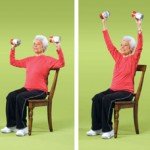Music and Neurosciences V – Blog 1 (Therapy, Poor singing and Healthy Ageing)
Hello Dear Reader,
 I am writing to you today from Dijon.
I am writing to you today from Dijon.
This post will appear after I return but at this moment I am sitting in my little hotel room near to the Palais des Ducs. Despite my love of food and good red wine, I am not here for a gustatory holiday – though I won’t deny I am enjoying the odd indulgence.
I am here to attend Music and Neurosciences V, one of the best music psychology conferences in the word, hosted every three years by the Mariani Foundation.
The theme of this year’s conference is ‘Cognitive Stimulation and Rehabilitation’, a nod to the increasing amount of work in this area of music-related research but also in connection with the wonderful music rehabiitation programs that exist in this area of France.
 As my regular readers will know I am based in Switzerland at the moment, in the beautiful town of Luzern. Travel to Dijon from here is delightfully easy and quick – and thankfully involves no airports.
As my regular readers will know I am based in Switzerland at the moment, in the beautiful town of Luzern. Travel to Dijon from here is delightfully easy and quick – and thankfully involves no airports.
The plan was a one hour train to Basel and then the zippy TGV train straight to Dijon: Less that 3 hours door to door.
Once at the conference I settled into my hotel (Quality North Hotel – I can recommend!) and headed for the opening session. The first session was chaired by the charming Julian O’Kelly and Wendy Magee, presenting their work on music therapy and disorders of consciousness (DOC). I have written a previous blog on a similar presentation that I attended at their hopsital, which you can read here.
 The focus of the work is the use of music therapy, in combination with other assessments, to boost diagnosis of DOC. This is a very improtant issue as current misdiagnosis rates can be as high as 42%. Julian and Wendy showed that DOC patients can show their most sensitive responses in the auditory domain and in response to emotional stimuli, which makes music an excellent avenue to explore in terms of measuring their abilities.
The focus of the work is the use of music therapy, in combination with other assessments, to boost diagnosis of DOC. This is a very improtant issue as current misdiagnosis rates can be as high as 42%. Julian and Wendy showed that DOC patients can show their most sensitive responses in the auditory domain and in response to emotional stimuli, which makes music an excellent avenue to explore in terms of measuring their abilities.
Please follow this link to more information on their new assessment tool, the MATADOC.
 There then followed a short, two-talk session on poor singing. First, we heard from Psyche Loui who presented her latest findings tracking white matter pathways in the brains of poor pitch singers. White matter pathways are like the highways of information in the brain (with grey matter representing the hubs or stations of activity).
There then followed a short, two-talk session on poor singing. First, we heard from Psyche Loui who presented her latest findings tracking white matter pathways in the brains of poor pitch singers. White matter pathways are like the highways of information in the brain (with grey matter representing the hubs or stations of activity).
Psyche argues that identifying white matter differences in poor pitch singers’ amounts to identifying a ‘biomarker’ or ‘endophenotype’. These fancy terms mark the link between a person’s genotpye (their gene map) and their phenotype (their abilities and behaviours).
We then had a talk from Steven Demorest, who approaches the question of poor pitch singing from a more educational/developmental standpoint. He asked fundamental questions about pitch singing – what is reasonable to expect? What is ‘poor’ in terms of pitch singing? What is the normal progression of singing development, in the absence of training? All these questions will move us closer towards understanding how we might remediate poor singers, at all life stages.
 Steve pointed out the problem of defining ‘accuracy’ in pitch singing, the problem being that the definition of what is accurate tends to differ between studies. Actually people can be very accurate on a one off trial, but consistency is much harder to acheive. “Imprecise”, rather than straight forward “poor” singing, is widespread. Then there is the issue of making sure you test somone in their comfortable register and timbre.
Steve pointed out the problem of defining ‘accuracy’ in pitch singing, the problem being that the definition of what is accurate tends to differ between studies. Actually people can be very accurate on a one off trial, but consistency is much harder to acheive. “Imprecise”, rather than straight forward “poor” singing, is widespread. Then there is the issue of making sure you test somone in their comfortable register and timbre.
Finally, can machines every judge accuracy as well as expert raters?
We were shown an amazing graph of singing accuracy in preschoolers and 6th graders (I think that is around age 11 in the UK?) Between the two time points there was a steady improvement in performance. Then the performances of adolescents was superimposed on the figure – their response to complex singing tasks has regressed to the level of preschoolers.
This result shows clearly that singing ability is not a simple linear maturation process – rather the lack of singing in education (and perhaps lack of singing experience in general life) in adolescence compared to younger stages of life leads to “inexperienced” singers rather than “disordered” singers.
 After a coffee break we had a one hour keynote talk by Louis Bherer on cognitive plasticity in older adults. This was an interesting choice of key note – no mention of music. Nevertheless I found it fascinating and very encouraging. Bherer and his research group are working on the benefits of cognitive training and physical exercise for ageing populations.
After a coffee break we had a one hour keynote talk by Louis Bherer on cognitive plasticity in older adults. This was an interesting choice of key note – no mention of music. Nevertheless I found it fascinating and very encouraging. Bherer and his research group are working on the benefits of cognitive training and physical exercise for ageing populations.
These can be people who have not done any physical training in their whole life, starting as late as in their 70s. Here are the headline findings:
- 3 months of moderate exercise (3 times a week) lead to improvement in attentional control as well as measures of physical fitness.
- The same training was associated with benefits to stability (hopefully fewer falls) and posture control.
- These benefits were equal in groups described as “frail” and “not frail”, but were not found in the control group.
- Training in a simple cognitive task (same regime as the exercise) transfered to more general tasks of attention control.
Finally, we all headed to the beautiful hall at the Palais Des Ducs for a glass of that wonderful French wine that I alluded to at the start of this blog. We had a welcome from the Deputy Mayor and a few canopes, followed by a harpischord concert.
 I walked back to my hotel through the sunny medieval streets considering what I most enjoyed about conferences. Hearing about new research is a fantastic opportunity. But for me, the best thing is meeting fellow researchers, especially the young students who are presenting their first studies, so full of enthusiasm. They remind me why I chose this crazy life of a music psychology academic in the first place.
I walked back to my hotel through the sunny medieval streets considering what I most enjoyed about conferences. Hearing about new research is a fantastic opportunity. But for me, the best thing is meeting fellow researchers, especially the young students who are presenting their first studies, so full of enthusiasm. They remind me why I chose this crazy life of a music psychology academic in the first place.



One Comment
Saif Naser
This is a great and informative blog. We are known that Singing can have some physical benefits. Singing can help increase lung capacity and decrease stress. When you sing, musical vibrations move through you, fixing your physical and emotional landscape. I have been learned from Dubai Performing Arts Academy. Peoples come to this Academy and recover stress from regular lifestyle. I think that the Dubai Performing Arts Academy is really good for the improvement of physical and mental health.